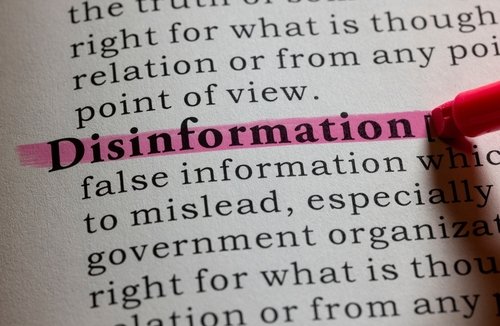Belgium (Brussels Morning Newspaper), In recent years, European democracy has faced significant challenges due to the rise of online disinformation thriving in the vast, largely unregulated expanses of social media and posing a silent threat to democratic integrity. The COVID-19 pandemic exemplified this issue, as misleading information sowed confusion and impeded effective health responses across Europe. This situation underscores the urgent need for action to combat online disinformation to protect European democracy, with the EU enhancing its efforts through various initiatives.
Online disinformation refers to false information spread deliberately to deceive, differing from “fake news,” which originally described sensationalist or fabricated news without the intent to mislead. Disinformation proliferates rapidly on social media and digital platforms due to its vast reach and the algorithmic amplification of engaging content. This has profound effects on public opinion, swaying perceptions and beliefs, and can significantly impact democratic processes by influencing voting behavior, stoking polarization, and undermining trust in institutions.
Disinformation is a significant concern among Europeans, with 83% perceiving it as a threat to democracy. A notable 63% of younger Europeans encounter fake news weekly, while over half of the population believes they have been exposed to disinformation online, highlighting the pervasive challenge it poses to informed citizenship and the democratic process.
The rapid dissemination of disinformation via social media and digital platforms is a critical concern, notably in the context of foreign malign efforts aimed at destabilizing democratic development. A prominent example is Russian interference, particularly its aggression towards Ukraine, which illustrates how state actors can leverage digital misinformation to influence global perceptions and political landscapes.
Alongside state actors, private entities also play a role, driven by various motives ranging from political agendas to financial profit. These actors exploit the interconnectedness and algorithmic biases of digital platforms, significantly amplifying their ability to sway public opinion and challenge the foundations of democratic societies.
Common strategies in disinformation campaigns include social media manipulation, where false narratives are spread to exploit platform algorithms and user biases; the use of deepfakes, which are hyper-realistic digital forgeries that misrepresent people or events; and targeted misinformation, aimed at specific groups to exploit vulnerabilities or prejudices. These tactics undermine trust in media and institutions, skew public discourse, and can sway political outcomes.
Combatting online disinformation faces multiple challenges, the anonymity of the internet allows perpetrators to spread false narratives without accountability. The unprecedented speed at which information circulates on digital platforms makes it nearly impossible to curb the spread of falsehoods before they reach wide audiences. The global nature of the web means disinformation can originate from any corner of the globe, transcending national borders and complicating regulatory responses. Moreover, crafting regulations that effectively mitigate disinformation without infringing on free speech rights poses a significant dilemma, as it’s vital to uphold democratic values while combating false narratives.
Despite facing numerous challenges, the EU has taken significant steps towards regulating disinformation, with policies like the Code of Practice on Disinformation and the Digital Services Act. Digital platforms have also implemented measures such as fact-checking partnerships and algorithms to demote false content. Yet, the effectiveness of these measures remains a subject of debate, with concerns about enforcement and the potential impact on freedom of expression.
Although the EU has enacted legal measures to combat disinformation, the Lessig model suggests that law alone isn’t enough. A broader approach that also includes changes in market dynamics, social norms, and technology is essential for a more resilient digital space.
Technological tools like advanced AI to detect deepfakes, market incentives for platforms to prioritize factual content, and fostering a culture that values critical media literacy can complement legal frameworks. Crucial to this effort is the consistent and close collaboration among all stakeholders, including governments, tech companies, and civil society, to ensure a comprehensive and cohesive response to the challenges posed by online disinformation. This multifaceted approach, encompassing all aspects of the Lessig model, is vital for creating a more resilient digital space against disinformation.
Addressing online disinformation is crucial for protecting democracy, as it undermines public trust and distorts democratic discourse. There’s an urgent need for a collaborative approach among all stakeholders to effectively counter this challenge and ensure a resilient digital environment.
Opinions expressed in the op-ed section are solely those of the individual author and do not represent the official stance of our newspaper. We believe in providing a platform for a wide range of voices and perspectives, even those that may challenge or differ from our own. As always, we remain committed to providing our readers with high-quality, fair, and balanced journalism. Thank you for your continued support.Sincerely, The Brussels Morning Team




